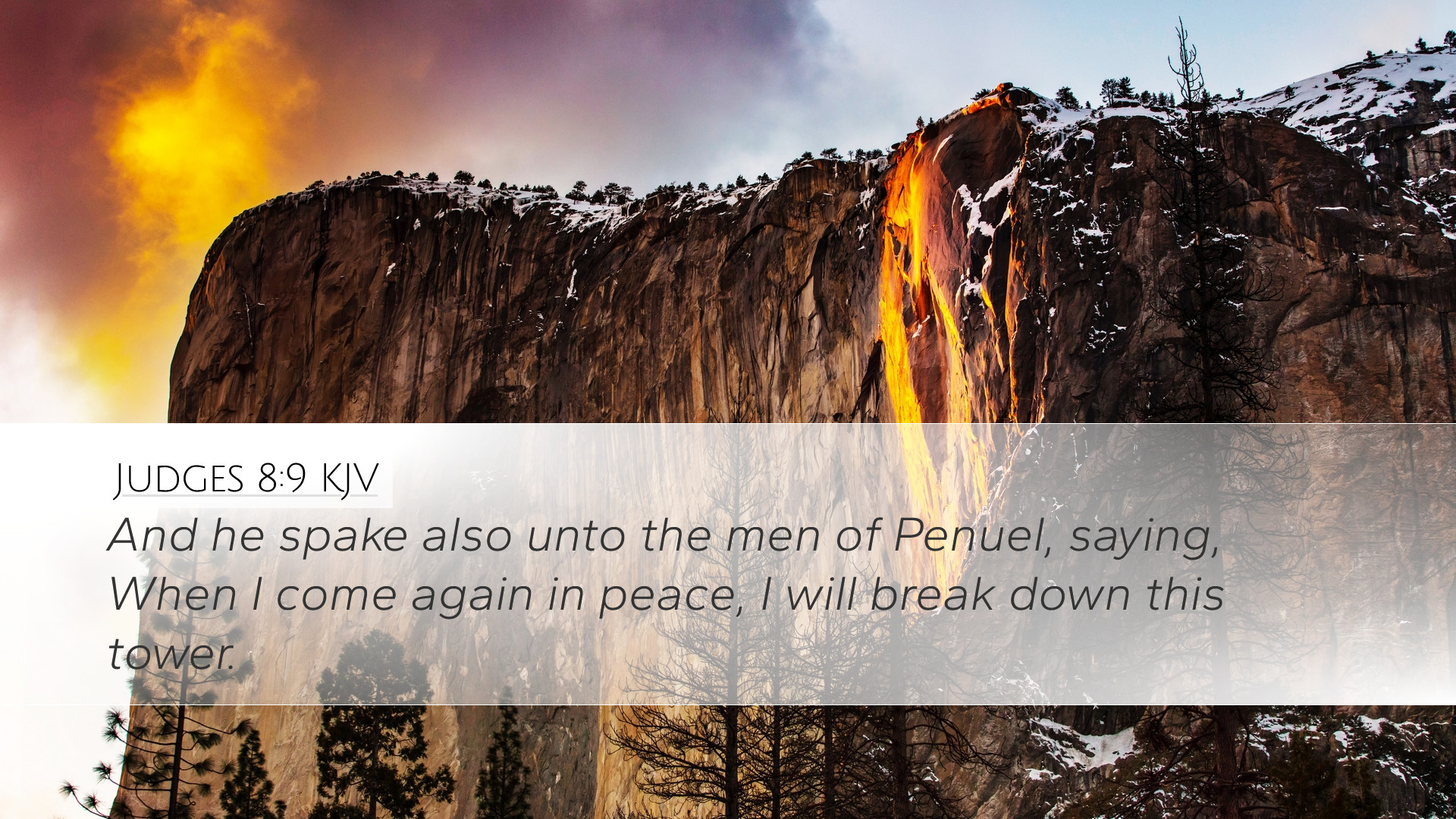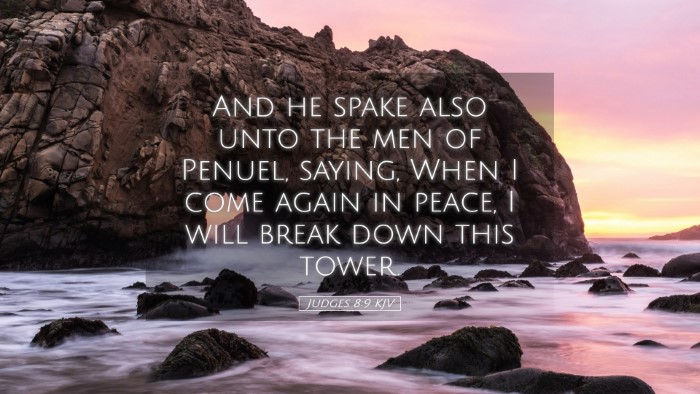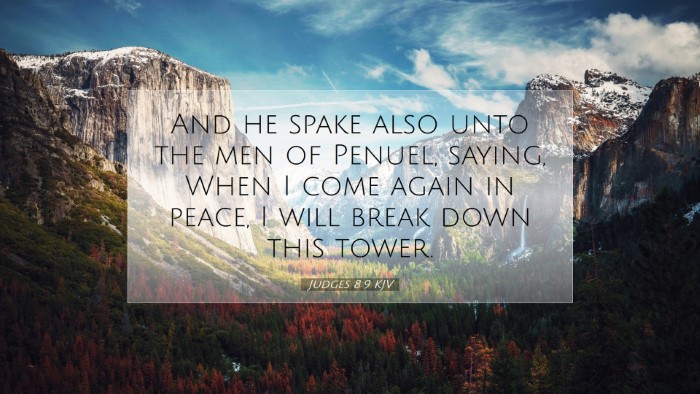Commentary on Judges 8:9
Judges 8:9 states: "And he said unto the men of Penuel, When I come again in peace, I will break down this tower." This verse captures the gravity of Gideon's mission and the sternness of his reprimand toward the people of Penuel.
Contextual Background
The book of Judges highlights a tumultuous period in Israel's history, marked by cycles of sin, oppression, repentance, and deliverance. Gideon, one of Israel's judges, emerges as a key figure in delivering the Israelites from Midianite oppression. This particular verse occurs after Gideon has already achieved significant victory over the Midianites, and he is in the midst of pursuing the remaining adversaries.
Insight from Matthew Henry
Matthew Henry’s Commentary provides critical insights into this verse:
- Leadership and Accountability: Henry emphasizes Gideon’s role as a leader who is returning to confront the uncooperative towns of Penuel and Succoth. His mention of returning to "break down this tower" signifies the consequences of their lack of support during a critical time of conflict.
- The Depth of Defiance: The refusal of the men of Penuel to assist Gideon, as noted in earlier verses, indicates a troubling defiance against God’s chosen leader, which Henry describes as an example of a lack of faith and support in communal struggles.
- Symbolism of the Tower: The tower of Penuel may be interpreted as a symbol of false security. Henry draws attention to the ultimate vulnerability of relying on physical structures rather than on faith in God's deliverance.
Insights from Albert Barnes
Albert Barnes in his commentary adds another layer to the understanding of this verse:
- Justice and Retribution: Barnes highlights that Gideon's statement carries a weight of impending justice. The men of Penuel had denied assistance, and their refusal is met with the promise of retribution which emphasizes the principle of divine righteousness and governmental order.
- Facing Opposition: Barnes suggests that Gideon’s stern approach is a reflection of the challenges leaders may face from their own people. In this case, Gideon's vow to "break down the tower" points to the harsh reality of seeking validation and support in the midst of divine missions.
- The Role of Authority: Barnes also notes the importance of authority in leadership. Gideon’s willingness to act against Penuel serves to establish the order that God desires within His people, creating an expectation of unity and cooperation in the face of common threats.
Contributions from Adam Clarke
Adam Clarke’s observations lead to practical applications and deeper reflections:
- The Historical Significance: Clarke points out that Penuel had historical relevance in Israel’s journey. By reminding readers of its position on the eastern side of Jordan, he stresses the importance of unity among the tribes and the grave consequence of disunity in the face of enemy oppression.
- Gideon’s Determination: Clarke notes Gideon’s unwavering commitment to God’s mission underscored in this verse. Despite the rejection he faced from Penuel, his focus on divine purpose is a crucial takeaway for contemporary believers and leaders.
- Consequences of Inaction: He warns against the consequences of inaction, reflecting on the idea that there should be no room for disloyalty when the common good is at stake. The fate of Penuel serves as a stern warning against treachery and disbelief.
Theological Reflections
This verse serves as a poignant reminder of the responsibilities that come with leadership. Gideon’s lamentation against Penuel urges contemporary believers to consider their dedication to God’s work and the work of their leaders:
- Commitment to God's Mission: The refusal of Penuel to help Gideon serves as a stark call for self-reflection. Are we supportive in our communities, or do we turn away when help is needed most?
- Facing the Consequences: The phrase “When I come again in peace” highlights the dual nature of God’s justice – He is also a God of peace, but that peace can only be extended under conditions of true allegiance and support.
- The Call to Unity: The fragmentation demonstrated in the verse is a challenge to the modern church, emphasizing the need for unified action and faith in the face of adversity.
Conclusion
Judges 8:9 reveals deeper truths about authority, unity, and the responsibilities that accompany God-given leadership. Through the analyses of noted commentators, there emerges a robust understanding of the dynamics at play between Gideon and Penuel. As pastors, students, theologians, and scholars delve into this text, the lessons of accountability, support in leadership, and the implications of divine mission continue to resonate.


